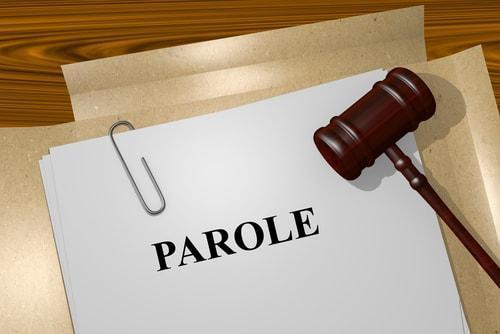 Last week, one of America’s most famous inmates captured the attention of the nation once again—just as he had 40-plus years ago on the football field and 22 years ago in arguably the most publicized criminal trial in our country’s history. This time, O.J. Simpson was up for parole after serving nine years in prison for armed robbery in 2007. The hearing was televised, and millions watched as the four-person parole board announced that Simpson will be released on parole later this year. For many, it may seem surreal that former football star will be going free, but it is important to understand that parole is not the same thing as full freedom.
Last week, one of America’s most famous inmates captured the attention of the nation once again—just as he had 40-plus years ago on the football field and 22 years ago in arguably the most publicized criminal trial in our country’s history. This time, O.J. Simpson was up for parole after serving nine years in prison for armed robbery in 2007. The hearing was televised, and millions watched as the four-person parole board announced that Simpson will be released on parole later this year. For many, it may seem surreal that former football star will be going free, but it is important to understand that parole is not the same thing as full freedom.
What Is Parole?
Parole is often confused with probation, and while the two are similar in some ways, they are very different things. Probation is typically used as an alternative to a prison sentence for relatively minor offenses. Some offenders may also receive probation in addition to a short period of incarceration. Individuals on probation serve their sentences while living in the community and under the supervision of probation officers. The court often sets strict conditions of probation and if those conditions are violated, the offender risks being sent to jail.
By comparison, parole is the conditional release from prison which allows offenders to serve the remainder of their sentences while living and working in the community. Discretionary parole is granted by a parole board while some jurisdictions provide for mandatory parole for certain offenses if conditions are met. In Connecticut, a person who has been sentenced to more than two years in prison can be considered for parole. Non-violent offenders must serve 50 percent of their sentence before parole will be considered, and those who committed violent crimes must serve 85 percent. Crimes such as murder and aggravated sexual assault are not eligible for parole.
Conditions on Freedom
While being paroled means the offender is no longer behind bars, it does not give him or her total freedom to live as he or she pleases. Recent efforts to reduce the state’s prison population have resulted in relatively more chance for parolees, but they still must meet the requirements set by the court and their parole officers. A parole officer has a great deal of power over a parolee’s life and can set conditions on who the offender can or cannot see, where he or she may go, and even whether or not the parolee can enjoy a beer.
A Case Study
As an example, The New York Times recently covered the story of a Connecticut parolee whose parole officer prohibited him from living with or even spending time with his girlfriend. During his incarceration, she visited him three times a week, called him regularly, and looked forward to the day that they could be together. When the man was paroled in 2015, his girlfriend was deemed by the state to be a victim of his drug-related crimes. Parolees are not permitted to have contact with their victims.
Over the next two years, he continued to see his girlfriend anyway. By the spring of this year, he was back in jail for failing to meet the conditions of his parole, and seeing his girlfriend was part of the problem. Ironically, she has since regained approval to visit him in prison again.
Questions About Parole?
If you have a loved one currently in prison who may soon be eligible for parole, an experienced Hartford criminal defense attorney can help you make sense of the situation. We can also help if you or a family member has been arrested and is facing criminal charges. Call 860-290-8690 for a free consultation at Woolf & Ross Law Firm, LLC today.
Sources:
http://www.cnn.com/2017/07/20/us/oj-simpson-parole-hearing/index.html
https://www.bjs.gov/index.cfm?ty=qa&iid=324
https://www.cga.ct.gov/2009/rpt/2009-R-0345.htm
https://www.nytimes.com/2017/07/16/us/life-on-parole.html
 50 Founders Plaza
50 Founders Plaza

